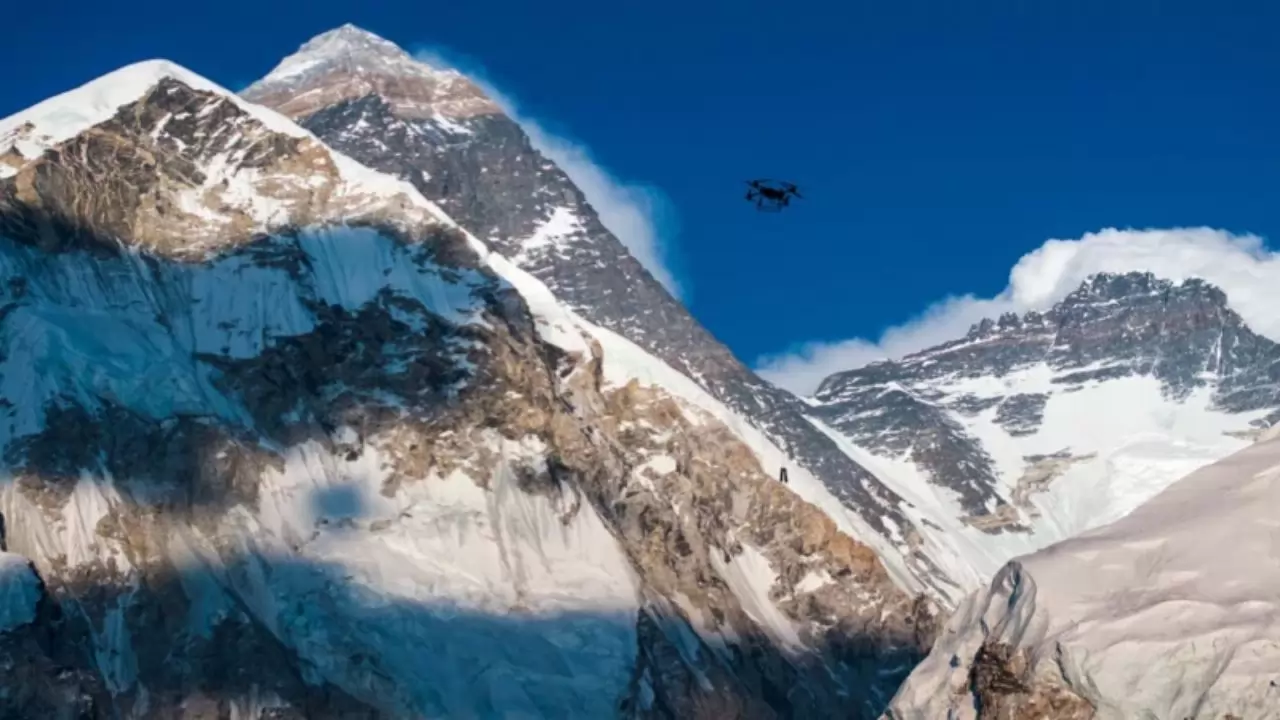
X/DJI Delivery
The world's first drone delivery on Mount Everest has been accomplished by DJI in cooperation with Nepalese Airlift, 8KRAW, and local guides. The test, which was carried out in April of this year, is a proof of concept for employing drones to quickly and safely deliver supplies to mountaineers.
DJI's FlyCart 30, which has a maximum carrying capacity of 33 pounds (15 kg), was used to accomplish this amazing accomplishment. According to the sources, the drone had to deliver the cargo at high elevations and under harsh conditions while remaining safe.
🌍🚁 DJI Delivery drones completed the world's first deliveries on Mount Everest.
— DJI Delivery (@DJI_Delivery) June 5, 2024
DJI FlyCart 30 carried oxygen bottles to climbers, and on the return trip, brought down 15 kg of trash. 🏔️ #worldenvironmentday #DeliveryDronesOnEverest
Learn More: https://t.co/Mvkj71QhUy pic.twitter.com/LjPB4ftuXX
To accomplish the mission, the FlyCraft 30 carried three oxygen bottles and approx. 1.5 kg of other supplies during the tests. It was flown from 17,389 feet (5,300 meters) above sea level at Everest Base Camp to 19,685 feet (6,000 meters) above sea level at Camp 1, setting a new record for civilian drone transport.
The drone even brought rubbish back from Camp 1 on its return flight. One of the riskiest parts of the ascent, the Khumbu Icefall, divides the two camps.
Signal obstructions can cause the remote controller to lose connection with the drone. However, after multiple rounds of adjustments, the DJI Delivery team eventually found that the terrain from C1 camp to the top of the Khumbu Icefall was relatively flat, allowing personnel to make quick round trips. Additionally, this area is above the Khumbu Icefall and along the climbing route, which removes the need to repair paths through crevasses. Using Mavic 3T flights, they finally identified a stable target point for single-control flights at C1, effectively addressing the signal issue.
On May 22, at the Everest South Base Camp, a local operational business that had been hired by the local government in Nepal formally inaugurated a regular drone transport project. One of the primary objectives is to clean up any leftover waste on the southern side of Mount Everest, beginning earlier in the season than planned.
According to the official statement, the new age for high-altitude climbing and rescue operations may be ushered in by the acceleration of regular high-altitude drone transport, which would support both the sustainable growth of the climbing sector and environmental preservation.





Copyright © 2026 Top Indian News
